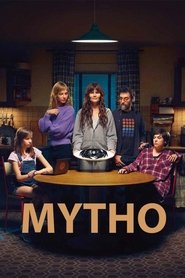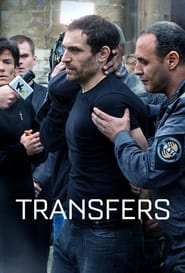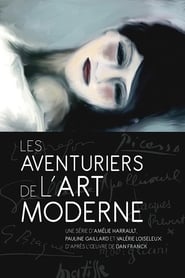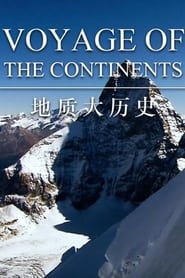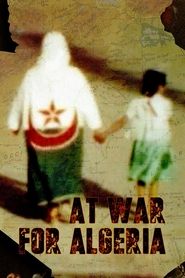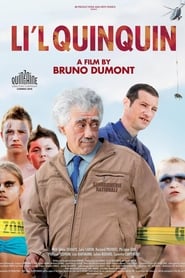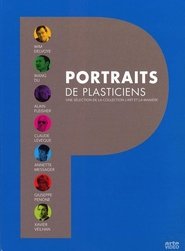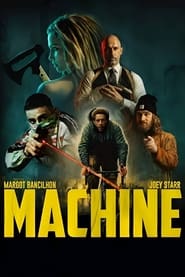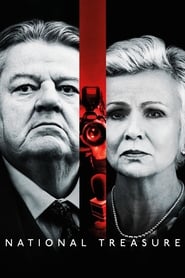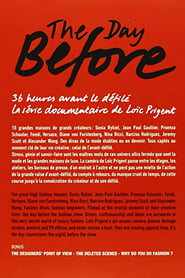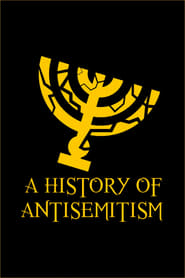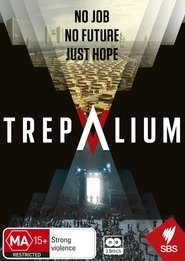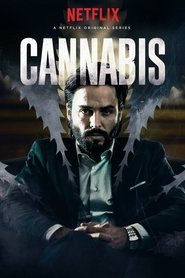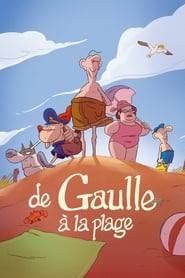Arte TV Series - Page 4
-
Mythomaniac
2019
star 6.4Burned out and taken for granted, a working mom suspects her partner is cheating, so to win back his attentions, she feigns a medical diagnosis. -
Bauhaus: A New Era
2019
star 7.11919. World War I has just ended. Dörte Helm, a young art student in Weimar, follows Walter Gropius’ call and joins the newly-founded Bauhaus school. A love story grows between Gropius and Dörte, adding fuel to the fire of the ensuing scandal threatening the very existence of the Bauhaus; the school of art that would go on to shape the 20th century like no other… -
Transfers
2017
star 7.4Thanks to science, after five years of coma, Florian has his mind transferred into another's body. Now he has to hide his identity, living as an officer with BATI, the anti-transfers unit. -
House of Glass
2024
star 9The slow descent into family hell. Four brothers and sisters get together for the wedding of their youngest daughter. The atmosphere, initially joyful, grows heavier as old family grudges resurface. -
Voyage of the Continents
2012
star 8This extraordinary series is a sweeping account of the rise of Earth’s continents. They are the product of a grand waltz of plate tectonics and the continual evolution of Earth’s crust. As landmasses assemble and separate, they fuel volcanoes and spark earthquakes, building mountains and tearing valleys. We see the Earth, eons in the making, through the eyes of geologists and other scientists. -
I Love You 2
2018
star 5.5At the age of 35, Hector happens to meet his childhood love Louise and falls in love with her all over again. But there's a big problem. He's gay and has been in a loving relationship with a man for several years. His life is turned upside down. He soon realizes that he doesn't want to have to choose between his two loves, Louise and Jérémie. How long can he keep the secret of his double life, the cause of both suffering and joy? -
At War for Algeria
2022
star 7North Africa, 1954. The Algerian war of independence begins, a traumatic and extremely violent catastrophe that for eight long years will shake and finally overthrow the foundations of the colonial regime established by France in 1830. -
Li'l Quinquin
2014
star 7.2A murder mystery that opens with the discovery of human body parts stuffed inside a cow on the outskirts of a small channel town in northern France. -
L'art et la manière
2005
L'art et la manière
2005
-
National Treasure
2016
star 6.7Paul Finchley is a bona fide "national treasure", one half of a popular, long-running comedy double act. The famous comedian's world is thrown into chaos when he is accused of historic sexual abuse. -
Apnea
2020
star 5.3An island in the Mediterranean is hit by an unprecedented fishing shortage and a string of suspicious deaths. These events coincide with the arrival of a mysterious stranger, Théa, rescued at sea, who will change the life of young Chloé. -
The Day Before
2010
star 8In this eight-part documentary series, Prigent chronicles the final 36 hours prior to crucial seasonal runway shows featuring creations by some of the fashion world's leading designers: Chanel, Marc Jacobs, Jean Paul Gaultier, Lanvin... In SIGNE CHANEL (2005) and MARC JACOBS & LOUIS VUITTON (2007), documentarian Loic Prigent unveiled rare and refreshing glimpses behind the doors of some of the world's leading fashion houses. THE DAY BEFORE captures 8 differents fashion houses 36 hours before a show. The backstage, the ateliers, the designer in studio, the fittings, the stress and the dramas occuring in this specific period of time. Each episode is totally different but tells the same story: how to create in a state of emergency? This is a never seen before full access story. -
A History of Antisemitism
2022
star 6.8A detailed account of the two millennia of intolerance and persecution suffered by the Jews, from antiquity to the present day. -
Trepalium
2016
star 6The economic situation is a nightmare: only 20% of the population is employed. The Actives live inside the city. On the fringes, in the Zone, live the Jobless. Separating them is a wall. -
Triads: The Chinese Mafia Conquering the World
2023
star 8Founded in the 17th century, the triads have built their myth around fighting China's enemies. Who are they? What role do they play in Chinese culture and history? What business are they involved in? What are their strategies? -
Cannabis
2016
star 5.9When a boatload of cannabis belonging to Moroccan drug lord El Feo is hijacked, the robbery has repercussions stretching across three countries. -
De Gaulle at the Beach
2020
star 8Summer 1958… Wearied by the ingratitude of the French and by the mediocrity of their leaders, the Liberator of France decides to go on a well-deserved holiday… Charles, rather dreamy but imperturbable, is accompanied by the ever faithful Captain Lebornec. Lebornec – devoted if sometimes flummoxed by the general’s attitude – is the ideal holiday companion and confidant. They are accompanied by Charles’ wife Yvonne, his son, and Wehrmacht, a descendant of Hitler’s dog. -
Nona and Her Daughters
2021
star 7.3Actor-turned-director Valérie Donzelli brings us Nona and Her Daughters, a delightful 30-minute dramedy series on the theme of motherhood. Nona, brought to life by the enchanting Miou-Miou (Going Places, Entre Nous) is a 70-year-old feminist. She’s madly in love with André and finally free of taking care of her daughters — 40-year-old triplets played by Virginie Ledoyen, Clotilde Hesme and Valérie Donzelli, herself. She adores her family, life is beautiful and she’s living it to the fullest… Until the day she discovers that she’s pregnant!
